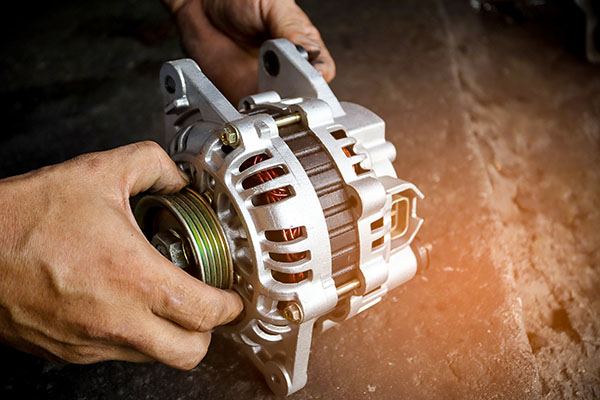Posted on 4/25/2023

When it comes to choosing a vehicle with enhanced traction and control, the terms "all-wheel drive" (AWD) and "four-wheel drive" (4WD) are often used interchangeably. While both systems offer improved handling and stability, there are some key differences between them, which you will see if you continue reading! Explaining The Four-Wheel Drive (4WD) Known as 4WD, 4x4, or four-wheel drive this mechanism is a drivetrain system commonly found in off-road and SUV vehicles. AWD systems, which typically operate full-time, 4WD is often manually engaged by the driver when needed. 4WD systems have a few benefits, so let's take a closer look at them: 4WD systems are designed for off-road adventures and challenging terrain. They provide maximum torque to all four wheels, improving traction and allowing the vehicle to navigate through mud, sand, or rocky terrain. Ideal for towing heavy loads or hauling cargo, as the additional torque distributed t ... read more
Posted on 4/19/2023

Why Is My Car Blowing White Smoke? When vehicles start to blow a visible smoke out of the tail pipe this is usually an indicator of a bigger issue going on with the vehicle. The color of the smoke is also very telling of what type of problem the car is having. White smoke generally means that the vehicle is burning coolant in the combustion chamber. A blue colored smoke is an indicator of oil being burned in the combustion chamber. Today were going to talk about white smoke, and how coolant ends up in the combustion chamber to begin with. How Does Coolant Get Into The Combustion Chamber? Every gasoline powered engine has coolant that circulates through the engine block and radiator to keep the engine cool and operating at a normal temperature. So how does it end up inside the combustion chamber when only fuel and air should be in the cylinder? There are multiple gaskets that keep the coolant sealed off from other areas of the engine compartment. How ... read more
Posted on 4/13/2023

Why Is My Car Not Starting? There are multiple reasons why your vehicle won’t start from time to time and there are a couple different sayings we use to determine what kind of no start condition the vehicle is having. A no crank no start condition is used to describe when you attempt to start your vehicle and nothing happens, the engine isn’t turning over and there are no sounds when trying to start. A cranks but won’t start condition is when attempting to start your vehicle and the engine is turning over or cranking but it won’t run on its own. No Crank No Start Condition? A no crank no start condition is usually, either the battery is no longer providing proper electrical power enough to turn the engine over, the starter has gone bad and is no longer cranking the engine over, or the engine has had a catastrophic failure and has seized. Cranks, But Won’t Start? When a vehicle will turn over or crank ... read more
Posted on 3/30/2023

Before we get into everything else, first you have to know what an alternator is. We can explain in detail, but let's leave mechanical talk to the specialists at the shop. Here is a simple explanation. When your engine is working, one or more pulleys are connected to it. These pulleys transfer mechanical energy using belts or chains to the surrounding components that need it. One of the main ones is the alternator. It converts mechanical energy to electricity, charging the battery. This is the main supply of electricity the battery gets, and if it fails, curtain signs occur - here are some of them, so you know when to go to the repair shop to save up on future headaches. 1. Battery Light Turns On The main reason for your car's battery light to come on is not a bad charge, but a faulty alternator. When there is no energy going in and a lot going out, the result is a loss of charge. This happens when the alternator doesn't charge the battery. It can be caus ... read more
Posted on 3/23/2023

How Does A Differential Work? There are multiple types of differentials and they all function differently, were going to talk about the most common differential which is called an open differential. Simply put the differential takes the power coming from the engine and splits it between the two wheels it is turning. The rear drive line attaches to either the back of the transmission or the transfer case depending on if its 4WD or not, as the engine transfers power through the transmission and into the drive line forcing it to rotate, the gears that are inside the differential housing, in turn rotating the axles which are attached to the tires allowing you to move forward and backward. Much like an engine these gears are suspended in a special gear oil that should be regularly changed. How Often Should I Service My Differentials? Most manufacturers have different service intervals for each fluid, and most recommend having the differentials servic ... read more